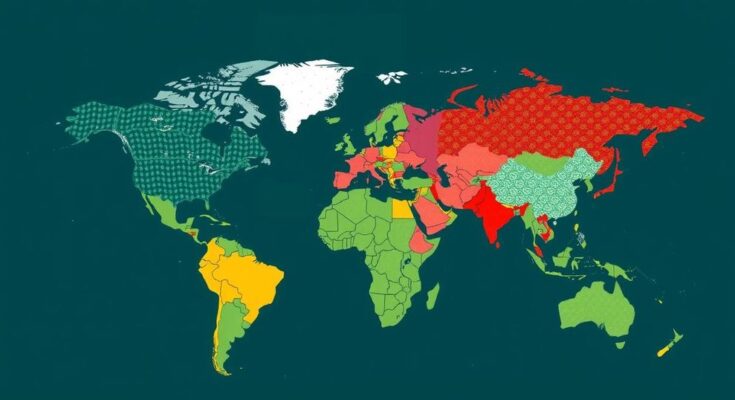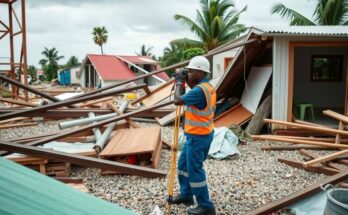A global study conducted by researchers from the University of Nottingham reveals that most individuals, including those in climate-vulnerable regions, lack an understanding of “climate justice.” Despite this, there is substantial acknowledgment of social inequities in climate change impacts. The study surveyed 5,627 adults across 11 countries, demonstrating strong support for principles of climate justice, highlighting the need for more informed advocacy and communication strategies.
An extensive international study encompassing participants from 11 nations reveals a concerning gap in understanding the concept of “climate justice,” even among populations profoundly affected by climate change. Led by researchers from the University of Nottingham’s School of Psychology, the study surveyed 5,627 adults from a diverse range of countries, including Australia, Brazil, India, Germany, Japan, and the United States, to gauge their familiarity with climate change issues. The research, published in Nature Climate Change, marks a significant foray into understanding public awareness outside the familiar arenas of Europe and North America. Despite a widespread acknowledgment of the social, historical, and economic injustices linked to the climate crisis, two-thirds of surveyed individuals reported being unaware of the term “climate justice.” Nevertheless, there was substantial agreement among participants on several related matters: 78% believed that poorer populations experience disproportionate effects from climate change, and similarly, 78% advocated for greater involvement of those from the worst-hit communities in decision-making processes concerning climate action. Furthermore, 70% recognized capitalism and colonialism as underlying elements fueling the climate crisis. The study highlights that climate justice includes three critical tenets: firstly, an acknowledgment that the repercussions of climate change are not equally distributed across society; second, that those most adversely affected frequently lack adequate representation in climate policy decisions; and third, that the policy-making framework often overlooks the interests of politically marginalized communities, thus perpetuating their disenfranchisement. Dr. Charles Ogunbode, Assistant Professor at the University of Nottingham, emphasized the necessity of considering climate justice in climate action responses. He stated, “It is ironic that research tends to be limited to what people in more affluent regions believe about climate change and climate justice,” pointing out the deficits in including voices from climate-vulnerable regions in significant discussions. He articulated hope that the study’s findings would empower climate advocates to advocate for just and equitable climate policies.
Climate justice is a critical framework that seeks to address the inequalities arising from climate change, recognizing that its impacts are often unequal based on socioeconomic and historical factors. The concept underscores the importance of inclusion in decision-making related to climate strategies, particularly for communities most impacted by climate change. Current global discourse frequently fails to reflect the perspectives of those in frontline communities, reinforcing existing social injustices and inequalities. This study aims to expand awareness and understanding of climate justice principles, particularly outside traditional Western contexts where much climate research has been centered, thereby informing more equitable advocacy and policy-making practices.
The findings from this study underscore the urgent need for enhanced awareness and understanding of climate justice, particularly among populations directly affected by climate change. Although a majority recognize the underlying social injustices associated with climate impacts, their unfamiliarity with the specific term “climate justice” suggests a critical gap in communication and education that must be addressed. Advocates are encouraged to leverage these insights to foster more inclusive dialogue and effective advocacy aimed at achieving equitable climate policies.
Original Source: phys.org




